
The following are publications by Elysia DeLaurentis, owner and principal researcher at Oakenwood Research. Each relies on detailed archival research and is presented as an engaging narrative.
George Belton Ford: Visitor or Vagrant
George Belton Ford was long known as an eccentric recluse, having eked out an impoverished existence in Muskoka Falls, Sudbury and the North Bay area before his arrest in Wellington County in 1908. His story illuminates the challenges faced by those experiencing poverty in the past century and earlier, as well as the striking attitudes held by those who lived alongside them.
Elysia DeLaurentis, “George Belton Ford: Visitor or Vagrant,” Wellington County History 37 (2024): 46-69.
Available through Magic Pebble Books.
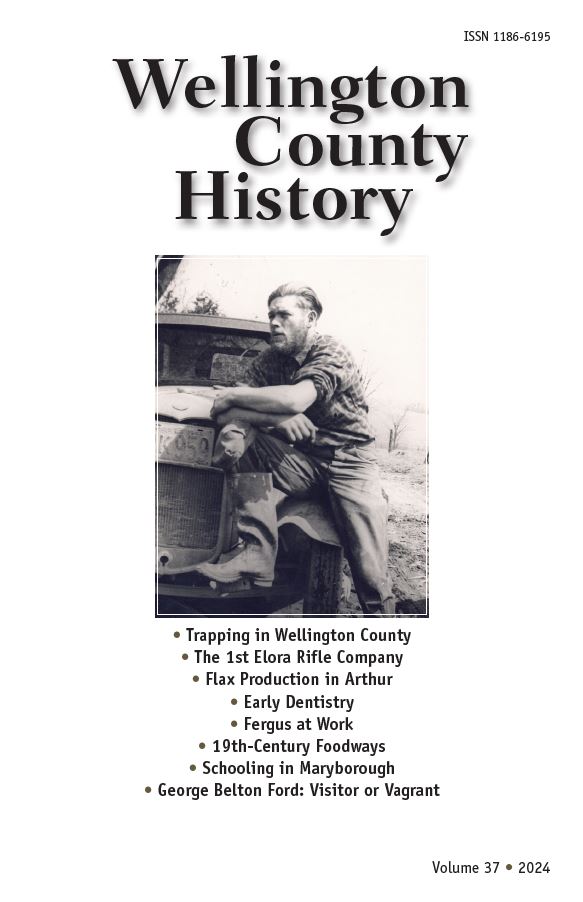

Murder, Bigamy & New Beginnings: The Wicklows of Chatsworth
Edward Wicklow and Eliza Loughead came to Canada as teens, fleeing Ireland with their families during the Great Famine. Full of surprising twists and unexpected turns, their story crosses the province from the wilds of Garafraxa to the dankest of prison cells, even leading to the office of the Prime Minister himself.
Elysia DeLaurentis, “Murder, Bigamy & New Beginnings: The Wicklows of Chatsworth,” Escarpment Magazine (Spring 2024), 88-94.
The Model Village and the Struggle for Success: A History of Elora, Ontario
The late Stephen Thorning is Wellington County's most prolific local historian and this represents his first foray into the field in the early 1980s. Updated and illustrated, this book touches on many aspects of village life while offering a detailed account of the political machinations and industrial aspirations that shaped Elora during its first century of existence.
Stephen Thorning, The Model Village and the Struggle for Success: A History of Elora, Ontario, edited with a preface and afterword by Elysia DeLaurentis (Fergus: Wellington County Historical Society, 2023).
Available through Magic Pebble Books
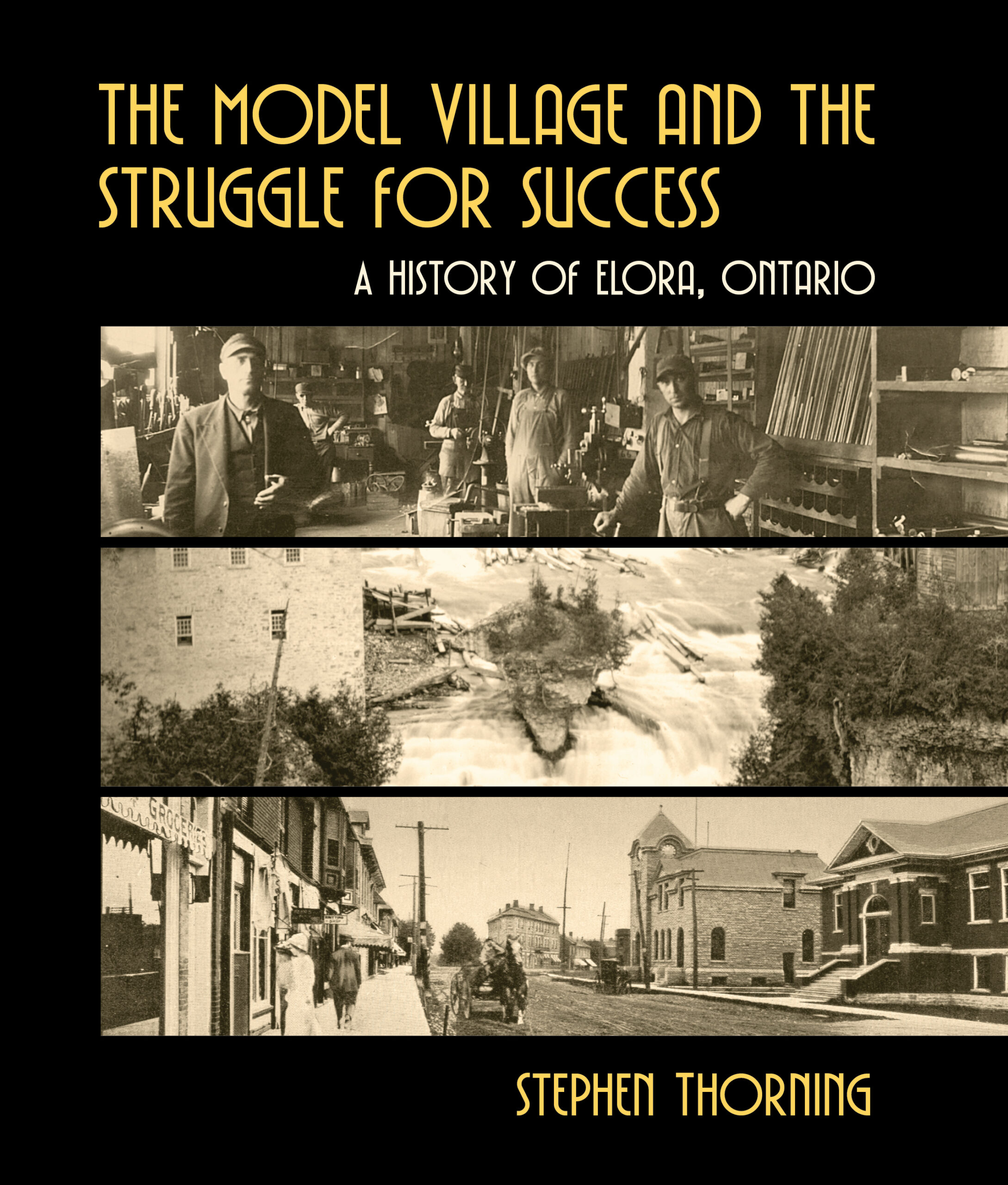
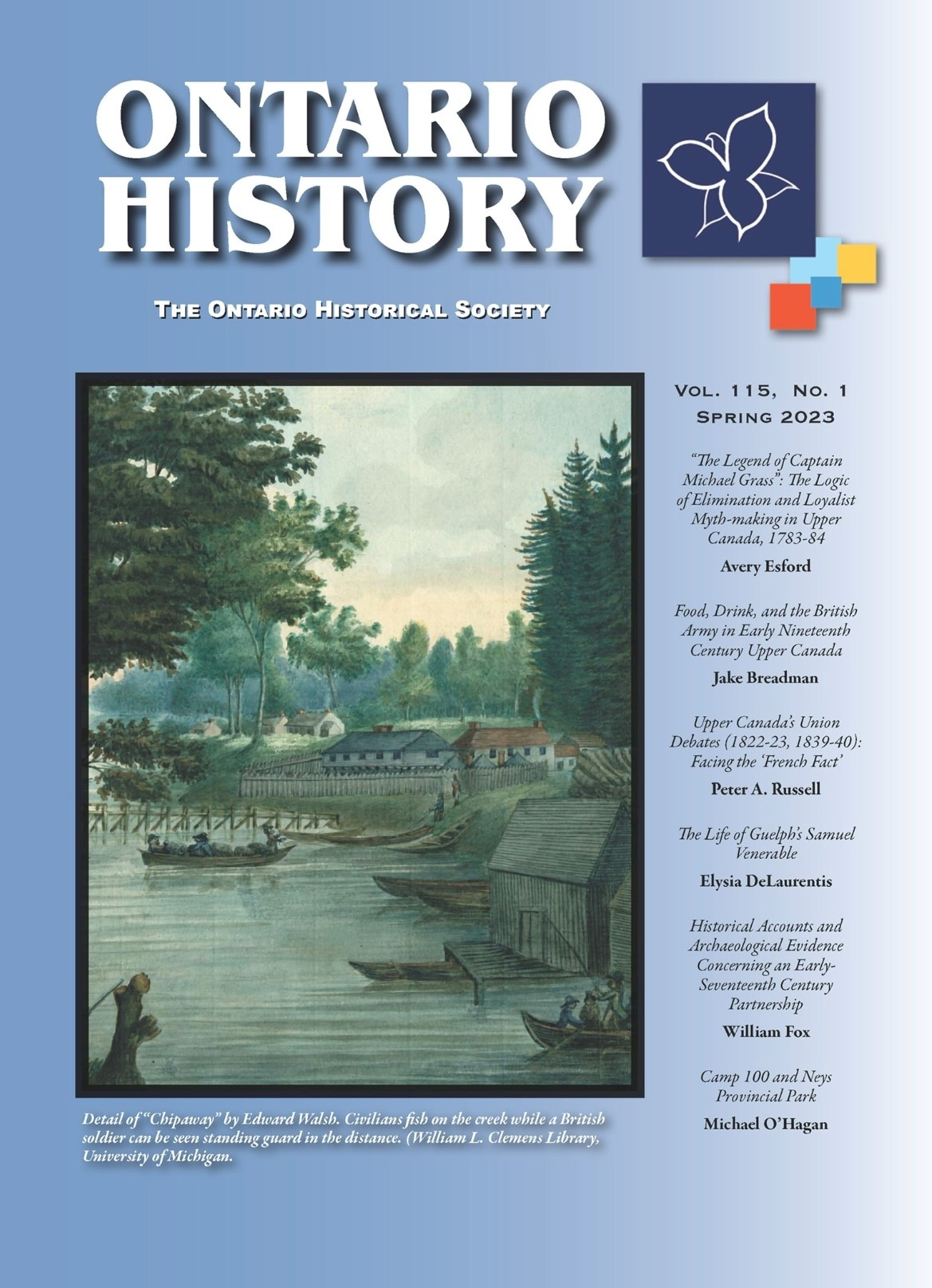
From Violence to Veneration: The Life of Guelph’s Samuel Venerable
Having grown up enslaved in northern Kentucky, Samuel Venerable fled to Upper Canada in the early nineteenth century, establishing himself in Toronto then London before moving to Guelph where he lived out his last thirty years. He faced the same hardships as other refugees to the province yet in many ways he was exceptional. By examining his life and those with whom he formed connections, this article offers a fuller understanding of the life experiences and circumstances faced by some 19th-century Black Ontarians.
Elysia DeLaurentis, “From Violence to Veneration: The Life of Guelph’s Samuel Venerable,” Ontario History 115 no.1 (Spring 2023), 71–98.
Accessible through Erudit.org
A Grand and Storied Home: the Drew House of Elora, Ontario
The Drew House is one of the best-known heritage homes in the charming southwestern Ontario village of Elora, though it long remained one of the least documented. This book changes that, exploring the evolution of the impressive stone home, beautiful grounds and coach house at 120 East Mill Street. Built for the family of 19th-century lawyer and judge, George Alexander Drew, each of those who have called this property home have, in turn, left their mark on it. This is their story as much as it is that of a grand and storied home.
Elysia DeLaurentis, A Grand and Storied Home: the Drew House of Elora, Ontario (Elora: Drew House Ltd. & Oakenwood Research Services, 2021).
Available through Magic Pebble Books and Drew House Bed and Breakfast.
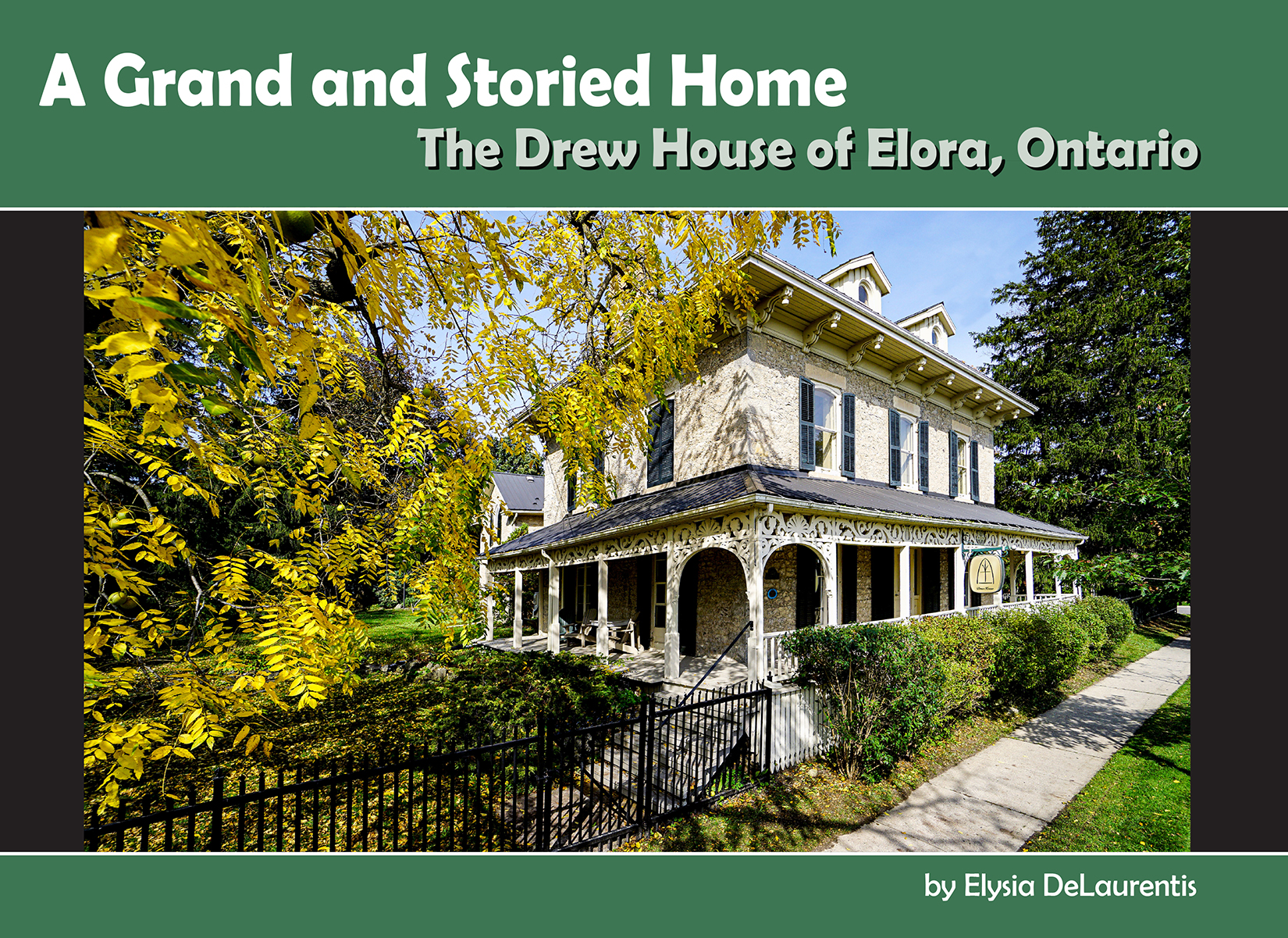
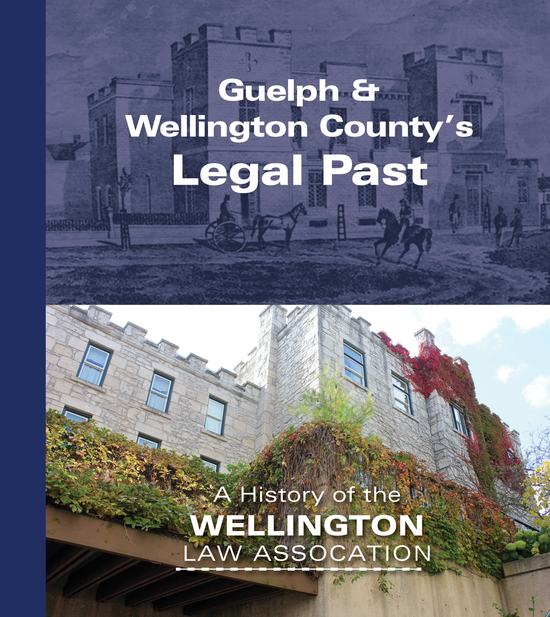
The Wellington County Solicitors’ Building: 15 Douglas Street
The 19th-century brick and stone structures that line Guelph’s Douglas Street were long home to law and government offices. Built in 1863, the beautiful limestone building at 15 Douglas Street served for over a hundred years as the headquarters of the Wellington County Solicitor. One of Guelph’s most striking heritage buildings, it serves the County still. It has seen as many renovations as it has solicitors in the intervening years yet it retains its character and charm, along with many elements from its decades as a legal office.
Elysia DeLaurentis, “The Wellington County Solicitors’ Building: 15 Douglas Street,” in G. Blaine Baker et al, Guelph and Wellington County’s Legal Past: A History of the Wellington Law Association (Guelph: Wellington Law Association, 2021), 32-40.
Available through the Wellington Law Association and the Guelph Historical Society
Gifts of Glass: the Shared Legacy of Cremona, Westbank, and Melville United Churches
When Melville Presbyterian Church in Fergus, Ontario, replaced their older quarters at the turn of the 20th century, few would have guessed that it would later serve as the catalyst for the creation of two churches in the Canadian west. In 1930, the church, by then Melville United, replaced its rear wing with a larger one. The stained-glass windows from that demolition it offered free to any congregation who could use them. Two took Melville up on their offer, one in Cremona, Alberta, and the other in Westbank (West Kelowna), BC. With that act of generosity so many decades ago, Melville’s gifts of glass continue to illuminate the buildings whose creation they inspired.
Elysia DeLaurentis, “Gifts of Glass: the Shared Legacy of Cremona, Westbank, and Melville United Churches,” Wellington County History 34 (2021): 39-64.
Available through the Wellington County Museum and Archives gift shop, I Love Chocolate, and Magic Pebble Books.
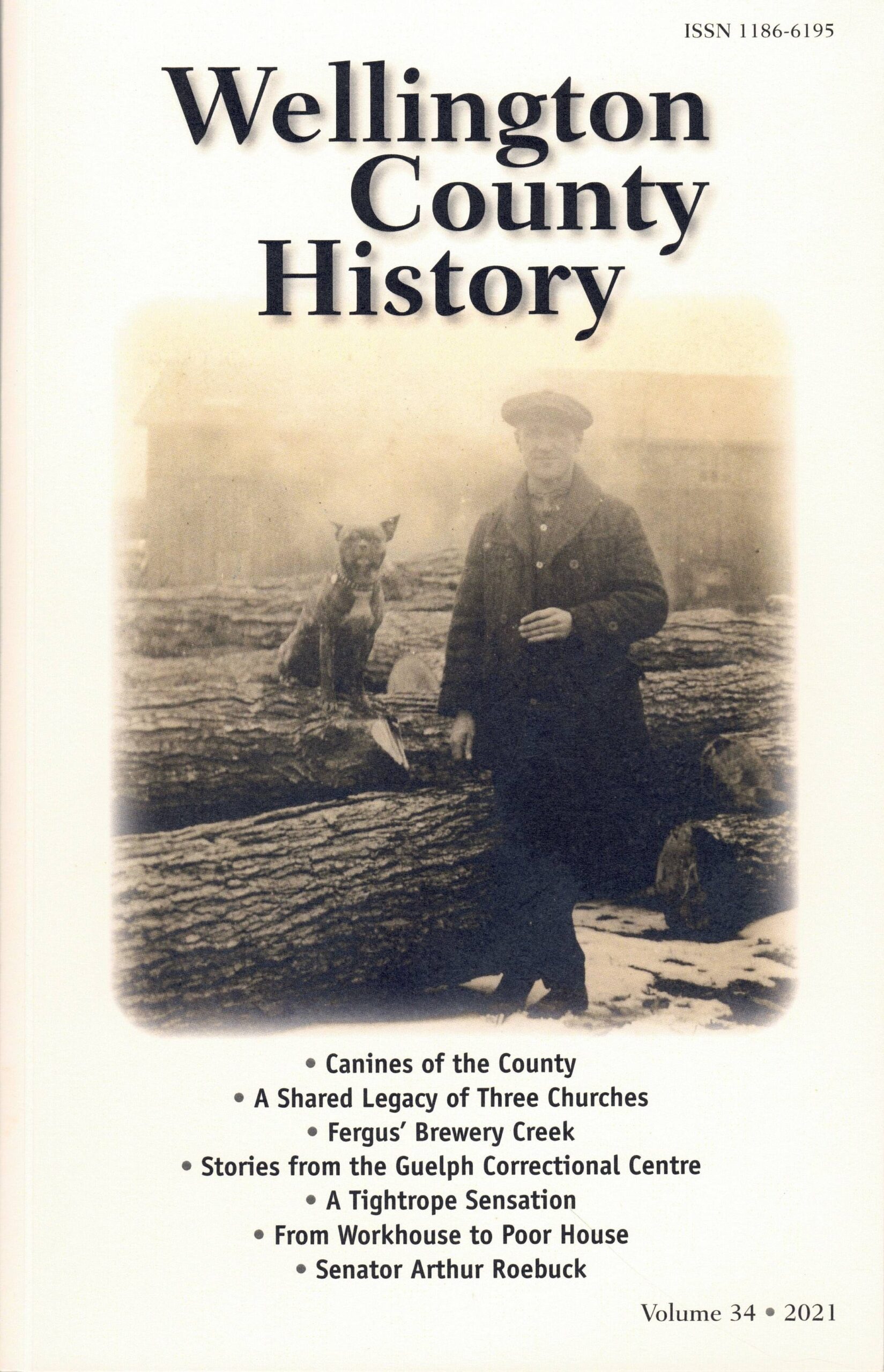
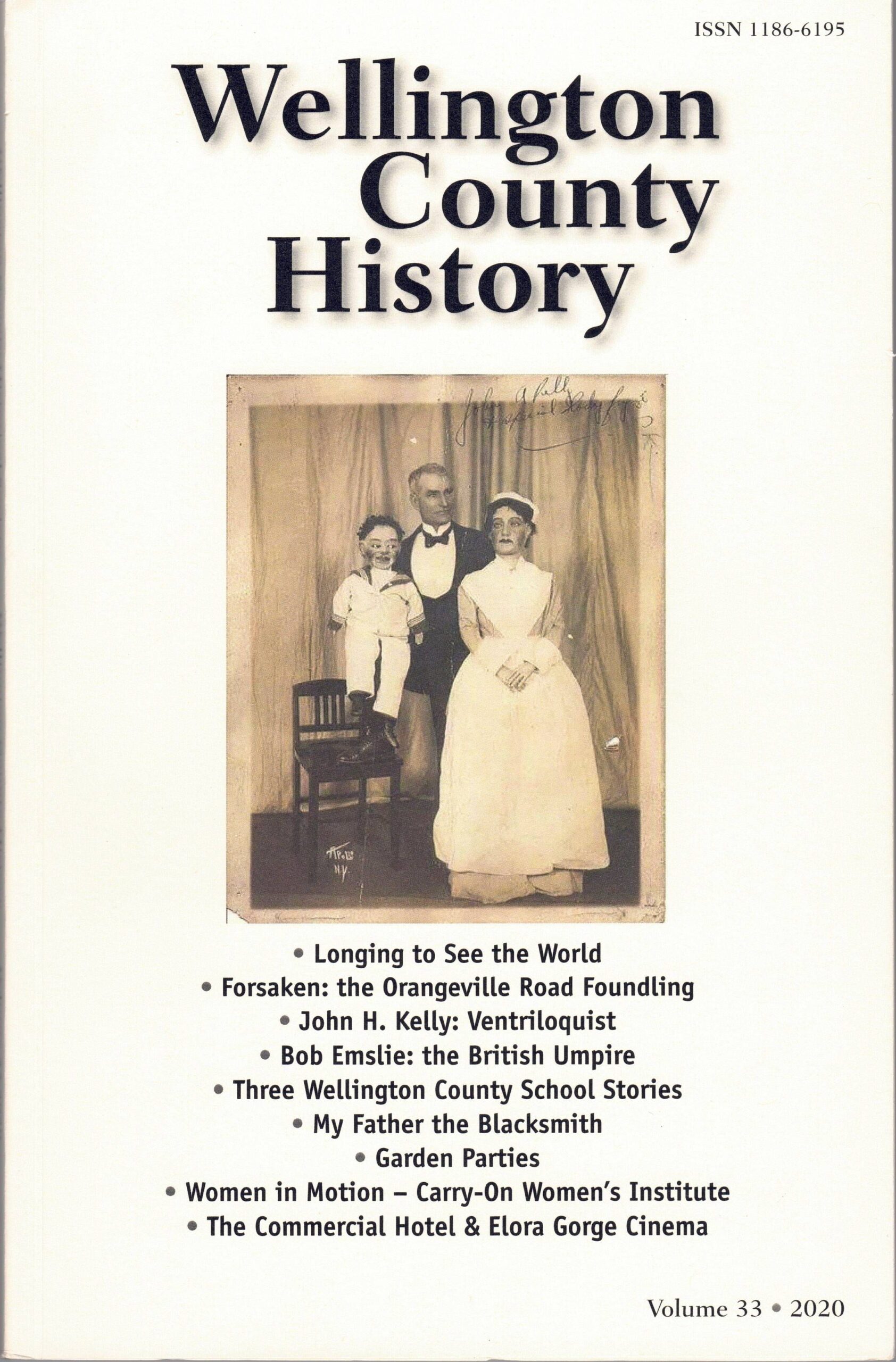
Forsaken: the Orangeville Road Foundling
It was in the spring of 1891 that two men returning to Fergus noticed a basket on the side of the road. Picking it up, they were surprised to find a healthy newborn baby nestled inside. What followed was a game of political hot potato, unending gossip and speculation, and a widescale police investigation that spanned municipalities. But when family secrets were revealed and the truth finally uncovered, it proved too much for some. This historical account of a Peel County family’s tragic circumstances and actions in the face of social pressure sheds light on the plight of unwed mothers and abandoned children, and their prevalence in rural nineteenth-century Ontario.
Elysia DeLaurentis, “Forsaken: the Orangeville Road Foundling,” Wellington County History 33 (2020): 12-37.
Available through the Wellington County Museum and Archives gift shop, I Love Chocolate, and Magic Pebble Books.
Disfunction, Disorder, and Distrust: the Early Years of Arthur Township Council
In the early 1850s, Arthur Township’s government was fraught with infighting, deception, accusations of embezzlement and insults, not to mention its Clerk-Treasurer’s own arrest and forcible ousting. A colourful account of egos and ineptitude, these tribulations highlight the challenges that the township faced, but it was not alone. Municipal disfunction echoes across time and the province.
Elysia DeLaurentis, “Disfunction, Disorder, and Distrust: the Early Years of Arthur Township Council,” Wellington County History 32 (2019): 28-51.
Wellington County History 32 (2019) is available through the Wellington County Museum and Archives gift shop, I Love Chocolate, and Magic Pebble Books. A free digital version of this journal is also accessible here.
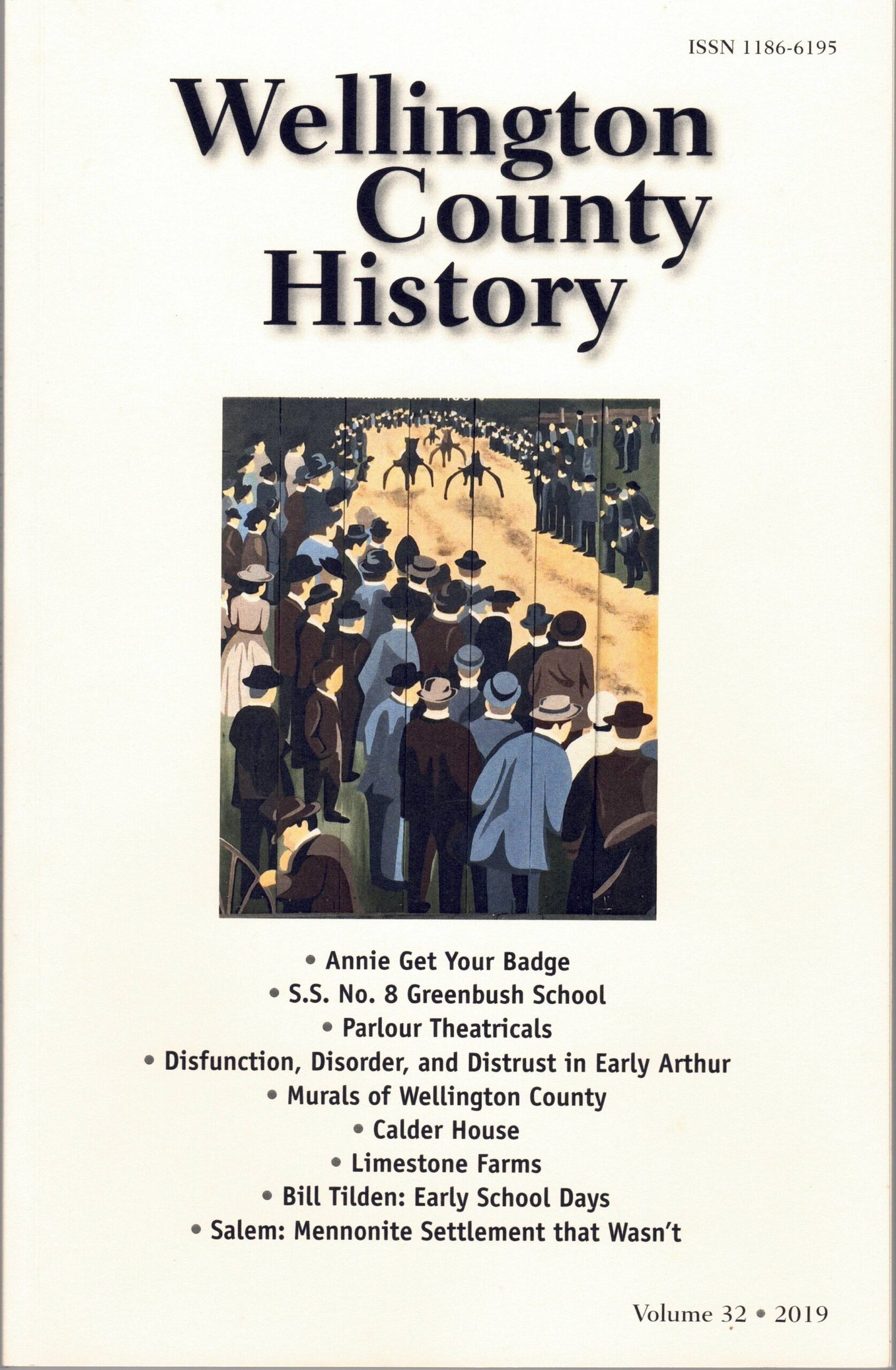
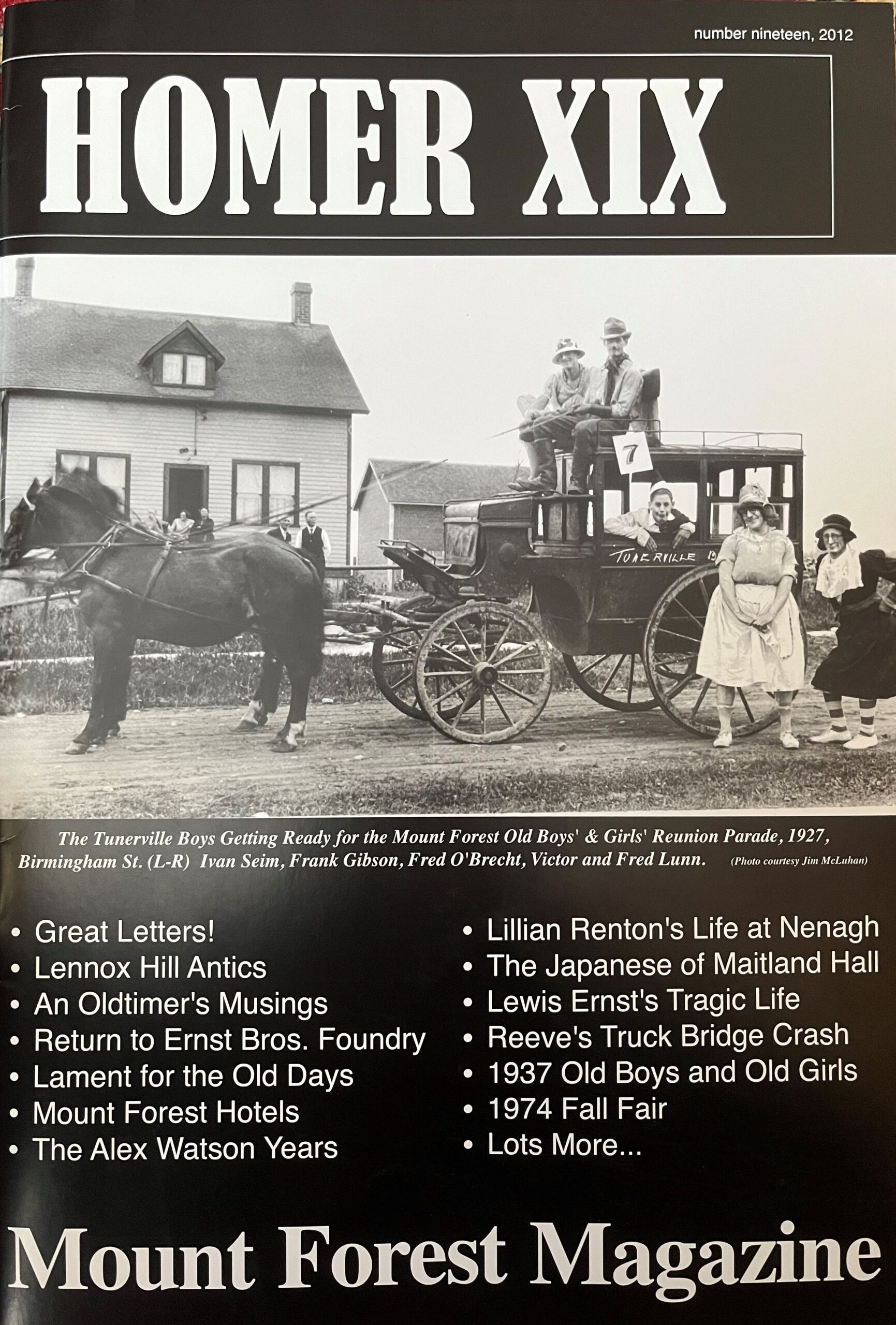
Superior Accommodation on Reasonable Terms: The Anglo American and Hewitt House Hotels
The 19th-century hotel was more than a place for weary travellers to lay their heads. In small towns across Ontario, they were the social centres of their communities and Mount Forest was no exception. Hotels served as bars and hang outs, restaurants, and billiards rooms. They were also venues for musical entertainment, political rallies and business meetings. Mount Forest has seen dozens of hotels come and go. Two of the oldest were the Hewitt House, which later became the Belmont, and the Anglo American Hotel, afterwards known as the Kent House. This article traces these two long-standing hotel buildings and explores the personalities and motivations behind the families who ran them.
Elysia DeLaurentis, “Superior Accommodation on Reasonable Terms: The Anglo American and Hewitt House Hotels,” Homer: Mount Forest Magazine 19 (2012): 30-36.
Delving Beyond the Date Stone: A Guide to Property Research in Wellington County
Every structure has a history, as does every stand of trees or vacant field. This article walks the reader through the process of property research, whether the subject of interest is a house, a farm, a business or a plot of land. With illustrations and examples, “Delving Beyond the Date Stone” makes clear what resources are out there, what one can expect to glean from them and, importantly, where to find them. While focused on Wellington County, the approaches explored in this article are applicable to municipalities across Ontario.
Elysia DeLaurentis, “Delving Beyond the Date Stone: A Guide to Property Research in Wellington County,” Wellington County History 21 (2008): 65-81.
Available through the Wellington County Museum and Archives gift shop. A free digital version of this journal can also be accessed here.
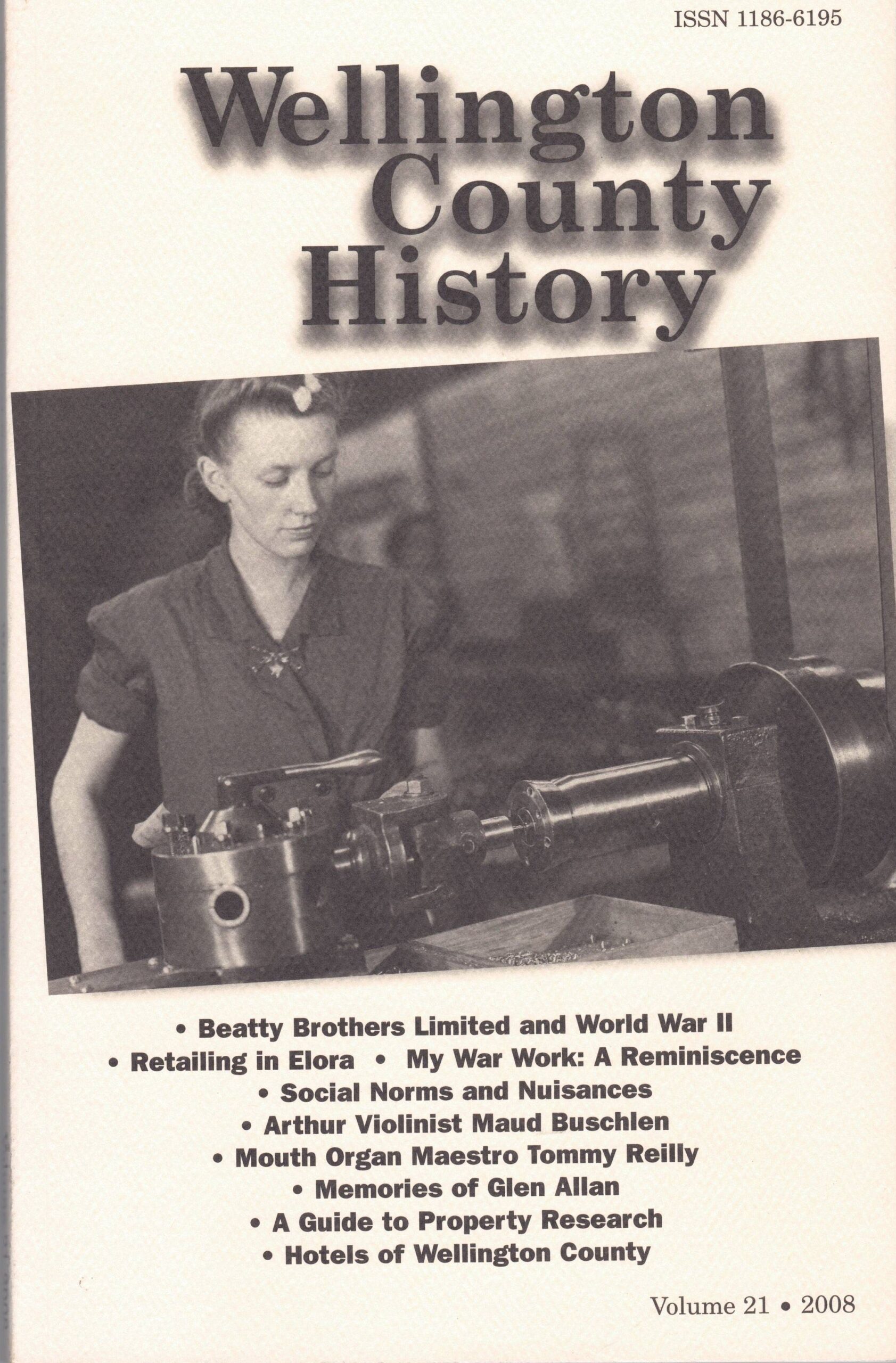
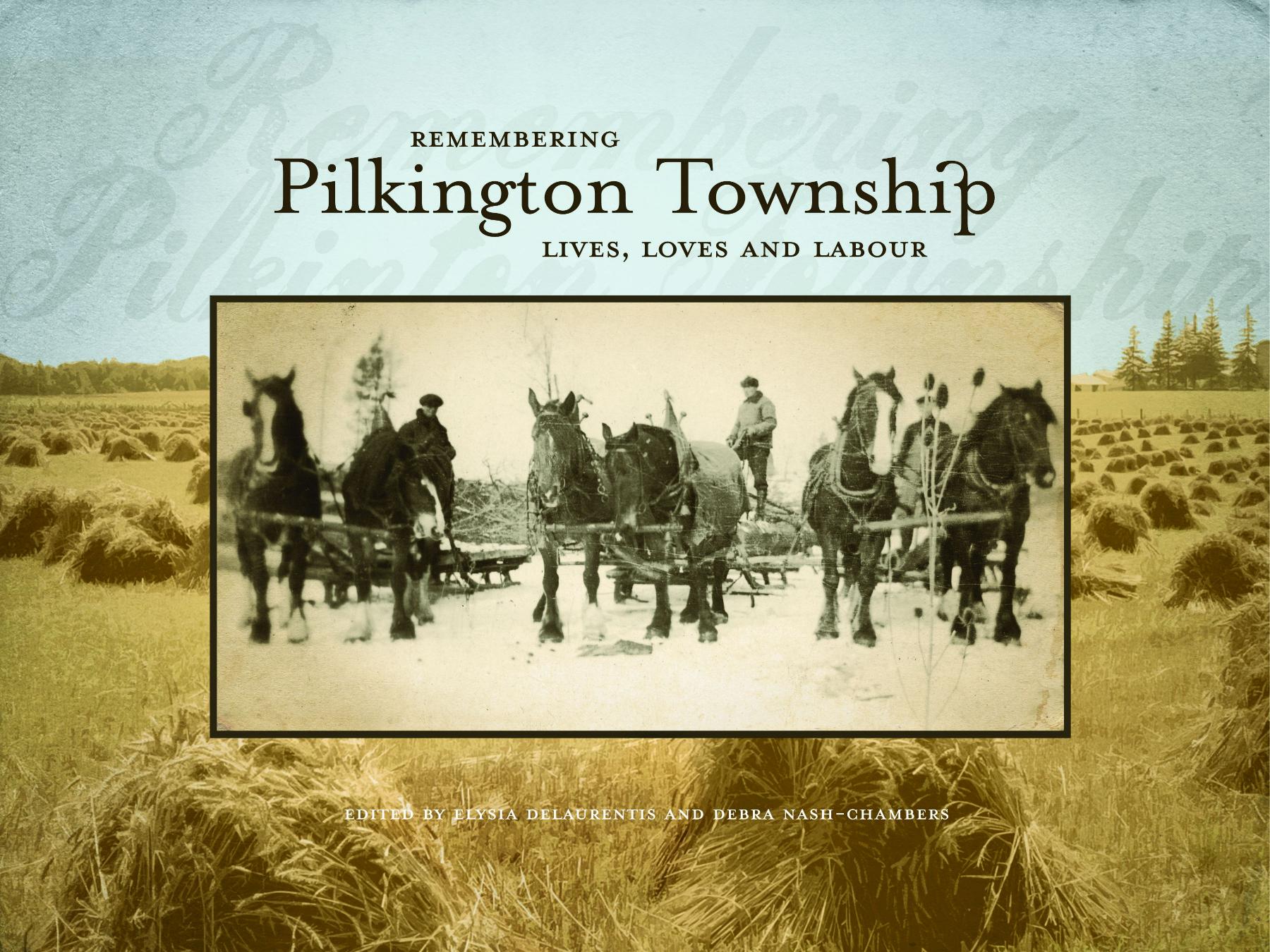
Remembering Pilkington Township: Lives, Loves and Labour
Editors Elysia DeLaurentis and Debra Nash-Chambers share the documented stories and collective memories of the many generations who have lived in this agricultural region of southwestern Ontario. These are the stories of the farm families, rural residents and social organizations that established roots and supported the economic development, institutions and sporting life of Pilkington for over 150 years. They provide not only an intimate glimpse into the patterns of rural life in Pilkington Township and greater Wellington County, but also offer insights relevant to an appreciation of nineteenth and twentieth-century rural townships across Ontario.
Elysia DeLaurentis and Debra Nash-Chambers, eds., Remembering Pilkington Township: Lives, Loves and Labour (Fergus: Wellington County Historical Society, 2006).
Available through the Wellington County Historical Society.
One of the People: The Avruskins of Salem
It was at the turn of the 20th century that two Russian Jews fled their homeland and, through a dedicated network, arrived safely in Canada. But unlike the majority of refugees who settled in ethnic enclaves in urban centres like Toronto and Montreal, these men found their way to the quiet hamlet of Salem, nestled amid the rolling farmland of rural southwestern Ontario. They were soon joined by cousins also seeking to flee hardship in Russia: the Avruskin and Borovoy families. Combining archival research with the memories of the daughter of Samuel Avruskin and Dora Borovoy, this article explores one family’s journey to successfully carve out a new life for themselves in a small, rural, and overwhelmingly Christian Canadian community.
Elysia DeLaurentis, “One of the People: The Avruskins of Salem,” Wellington County History 19 (2006): 62-80.
Available through the Wellington County Museum and Archives gift shop. A free digital version of this journal can also be accessed here.
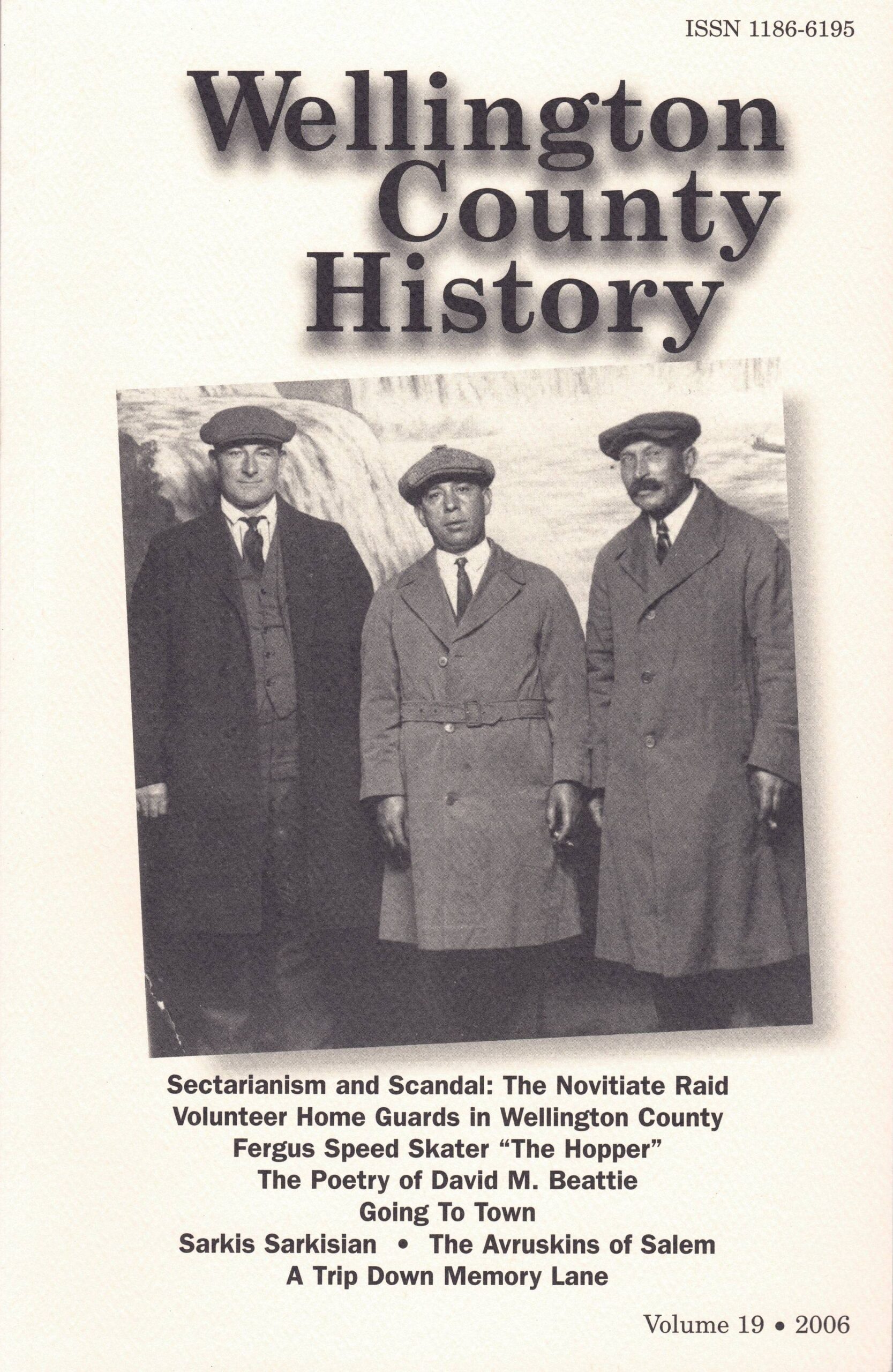
Looking to have a history book written or edited?
Contact Oakenwood Research Services to discuss your needs, get a quote, or make an inquiry. Be sure to include your full name and contact details, and let us know how we can help!
